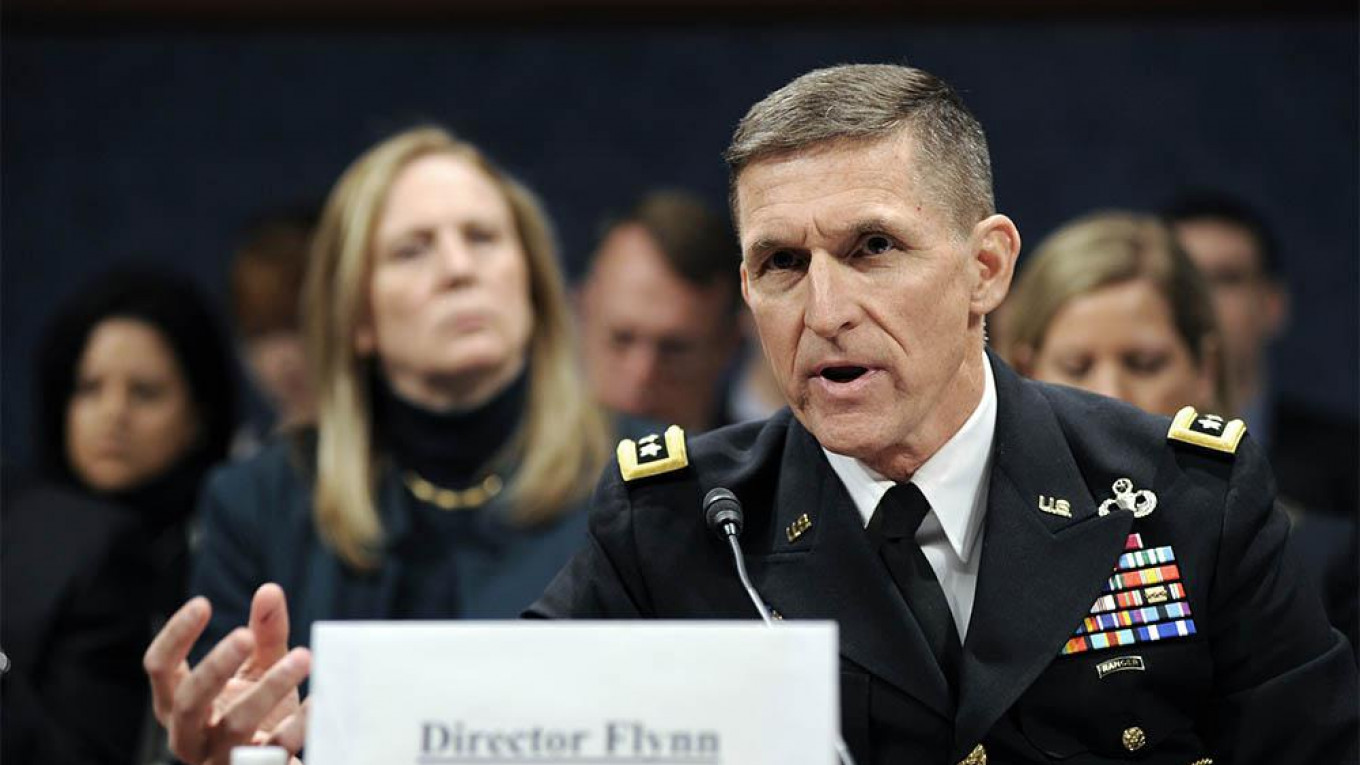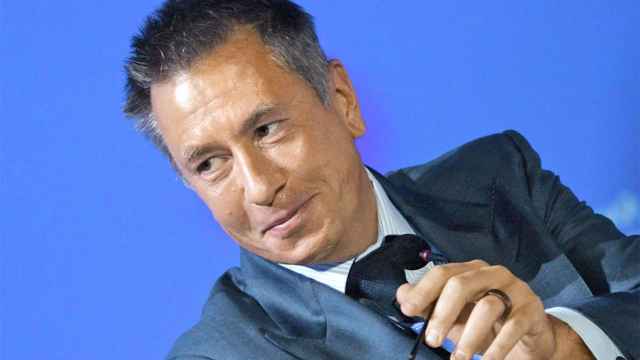General Michael Flynn’s guilty plea may spell deeper political and legal trouble for President Trump and his inner circle, but it is unlikely to do more damage to already troubled U.S.-Russia ties.
For one, the relationship between Moscow and Washington has deteriorated to such a historic low, that it's hard to see the depths to which it could sink further unless we all want to go to war — which we don’t.
Secondly, the charges and the plea agreement break little new ground.
We knew the FBI had tapes of Flynn’s conversations with the Russian ambassador in December last year — the FBI is supposed to monitor the ambassador’s phones. And the U.S. intelligence community already knew that Flynn had discussed President Obama’s sanctions against Russia with Sergei Kislyak, the former Russian Ambassador, and helped coordinate Moscow’s response.
Observers had assumed that Flynn was not freelancing — that he was acting in some capacity on behalf of the Trump campaign — when he was discussing delicate matters with a foreign power.
Indeed, newly disclosed emails from Trump's transition team, as well as the FBI affidavit, make it clear that Flynn acted on orders from above.
What remains unknown is whether those orders came from Jared Kushner, Vice-President Mike Pence, or President-elect Trump. Although Trump denied that he knew the substance of Flynn’s conversations with Kislyak, tweets he posted on Dec. 30, 2016 — praising Putin’s decision not to expel U.S. diplomats — suggest otherwise.
The news, of course, is that it was the Trump campaign which asked Moscow not to escalate, undermining Obama’s policy and breaking a promise that the transition team would not sow confusion in U.S. policy toward Russia.
What is still unknown is whether Flynn had orders to tell the Russian side that the Trump administration would lift sanctions over election meddling and ease Ukraine sanctions as part of an exchange.
Flynn’s communications with Kislyak may have violated the Logan Act, which bans private citizens from conducting foreign policy, but it is unclear whether this prohibition applies to presidential transition officials or the National Security Advisor designate — much less if he was acting on orders from the President-elect.
The motivations behind the conversation are also interesting. The Trump team seems to have been more concerned that Obama’s sanctions over Russian election meddling were meant to discredit Trump’s election victory, as K. T. McFarland, Trump’s key national security aide, wrote in an email to other transition officials.
McFarland’s email betrays the Trump campaign’s focus on improving relations with Moscow, which was viewed as the key to giving Trump broader policy options in Syria and Iran. That position is misguided, but it is not illegal.
What is much less clear is whether the Trump team’s secret dealings with Moscow to lift sanctions or improve the relationship were part of a deal for covert Russian help to dig dirt on Democratic nominee Hillary Clinton.
Unless Flynn and others from Trump’s inner circle provide Mueller with evidence that is “beyond a reasonable doubt," the “Russian collusion” story will not have any political, much less legal, repercussions for Trump.
Ironically, Kislyak provided Flynn with an alibi against “Russian collusion” by denying the Flynn-Kushner request for Moscow to block the UNSC resolution censuring Israel, which the Obama administration decided to let pass.
Going forward, the things to watch will be whether Flynn implicates Jared Kushner in that December 2016 meeting with Ambassador Kislyak. During the meeting, Kushner asked for a secret communication channel between Moscow and the transition team at Russian diplomatic facilities.
While Kushner’s bizarre request could be explained by his inexperience in foreign policy, it may also suggest a pre-existing relationship between the campaign and Moscow that provides the context for what would have amounted to an illegal clandestine operation.
Flynn’s guilty plea deal — a generous one from Mueller, who clearly expects the former national security advisor to continue cooperating — may have more to do with the story of Trump’s “obstruction of justice” than with the “Russian collusion” story.
If Mueller proves that Flynn lied to the FBI about his calls with the Russian Ambassador Kislyak on President Trump’s orders — or that Trump was simply aware of that fact while publicly denying it — the “obstruction of justice” charge will become more substantiated.
The real impact of this multifaceted scandal on the U.S.-Russia relationship would be to push back any chance of a rapprochement until Mueller’s investigation reaches some sort of conclusion.
It is inconceivable that the Trump administration will change course on Russia in the absence of any major changes in Russia's posture and with Mueller’s prosecutors scrutinizing every campaign email that contains the word “Russia."
We are in for a rough ride well into 2018.
Vladimir Frolov is a Russian political analyst and columnist. The views and opinions expressed in opinion pieces do not necessarily reflect the position of The Moscow Times.
A Message from The Moscow Times:
Dear readers,
We are facing unprecedented challenges. Russia's Prosecutor General's Office has designated The Moscow Times as an "undesirable" organization, criminalizing our work and putting our staff at risk of prosecution. This follows our earlier unjust labeling as a "foreign agent."
These actions are direct attempts to silence independent journalism in Russia. The authorities claim our work "discredits the decisions of the Russian leadership." We see things differently: we strive to provide accurate, unbiased reporting on Russia.
We, the journalists of The Moscow Times, refuse to be silenced. But to continue our work, we need your help.
Your support, no matter how small, makes a world of difference. If you can, please support us monthly starting from just $2. It's quick to set up, and every contribution makes a significant impact.
By supporting The Moscow Times, you're defending open, independent journalism in the face of repression. Thank you for standing with us.
Remind me later.








